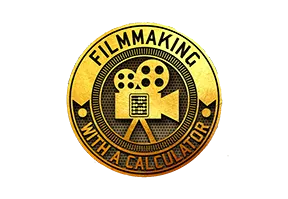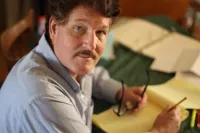CreativeExplorer-MichaelMandaville.com
I work in Film. I live in Martial Arts. I thrive in Imagination.
Scholar
OODA - Observe. Orient. Decide. Act.
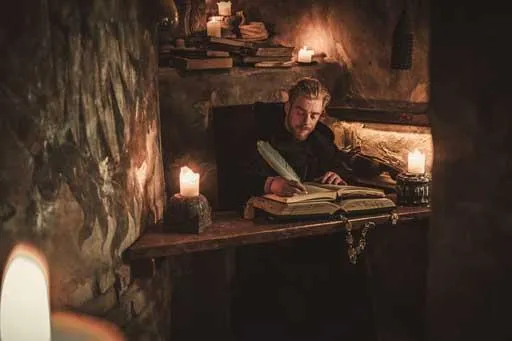
What Is The Scholar?
A system of consistent learning and self-development, improving in a highly competitive environment like Filmmaking, Writing and the Creative Arts will give you an edge. The simple Act of Living requires constant Growth. The Scholar informs the Warrior. The Warrior Acts but leads with the Scholar.
The Scholar creates your unique, authentic and individual understanding and then the Warrior ferociously acts upon these
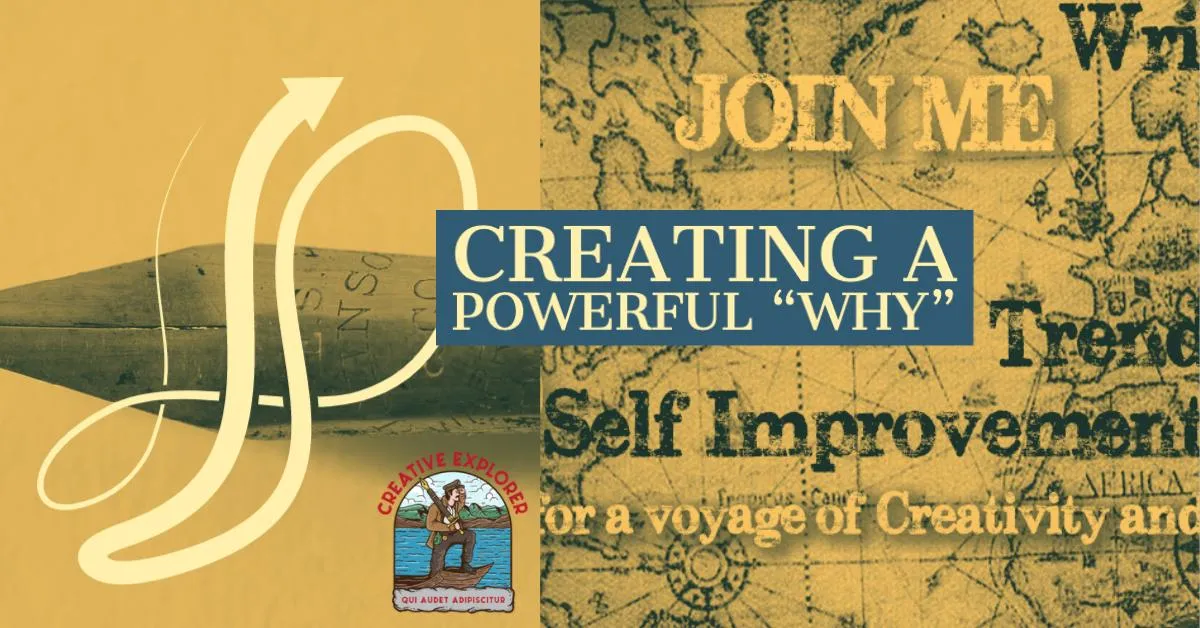
Creating Your Powerful Why: Inspiration
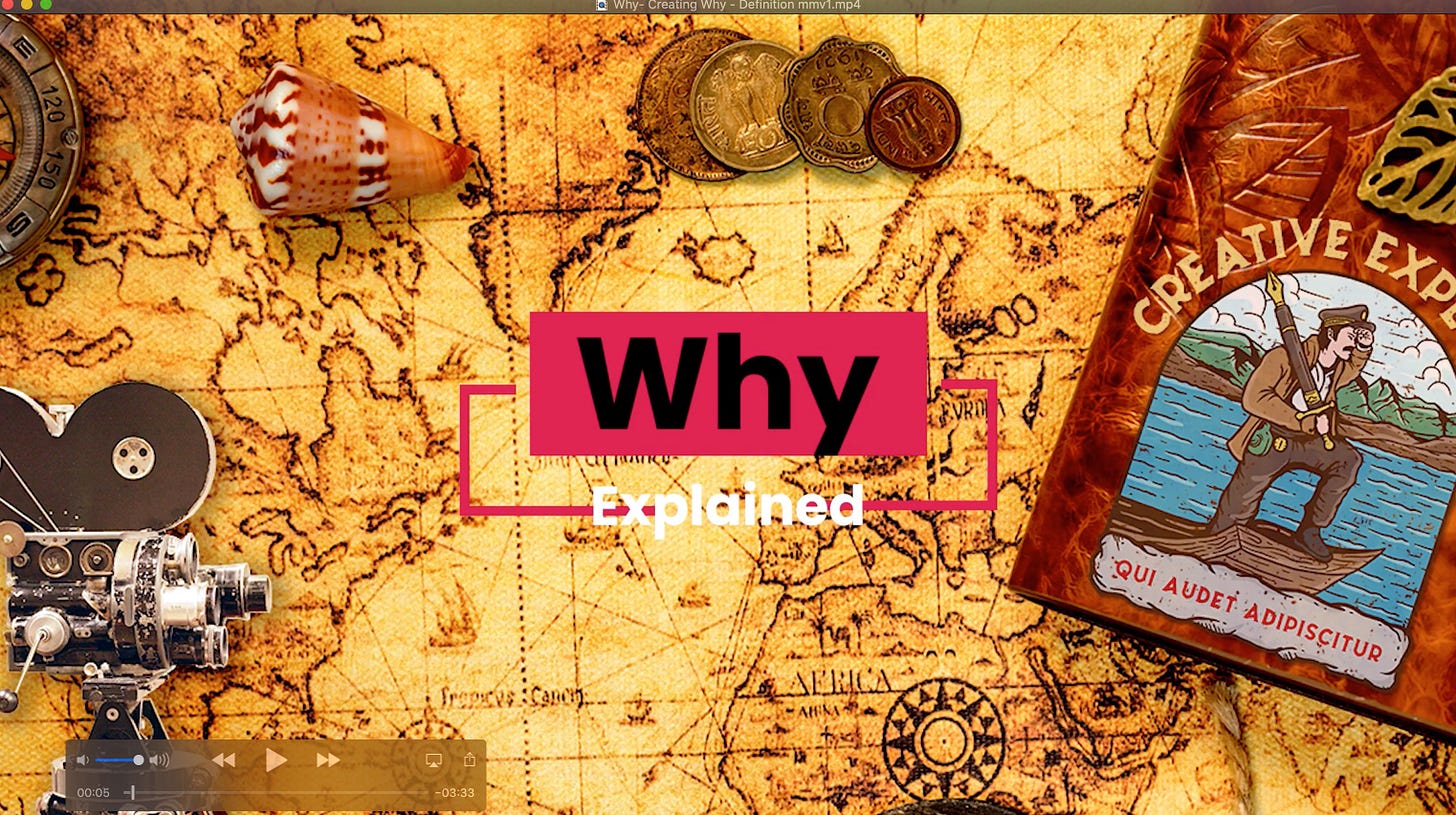
“Creating a Powerful Why” is an excerpt from my Online Course “Scholar Warrior Is the Way” which is a compilation of Thoughts, Techniques, Sources and More for Self-Improvement, Writing, Filmmaking and Creative Explorer Curiosity. FREE TRIAL!
KEY TAKEAWAY: A Great Why Creates Energy, Enthusiasm....Life!
Answer me this: What is the origin of the word "Enthusiasm"?
Do you think it common excitement about a trivial endeavor? Or what you experience at the release of a new movie? Or is it something much, much more?
Consider the etymology of the word. Etymology(definition below) means the words original linguistic intention. See the full definition down below.
enthusiasm (n.)
c. 1600, from French enthousiasme (16c.) and directly from Late Latin enthusiasmus, from Greek enthousiasmos "divine inspiration, enthusiasm (produced by certain kinds of music, etc.)," from enthousiazein "be inspired or possessed by a god, be rapt, be in ecstasy," from entheos "divinely inspired, possessed by a god," from en "in" (see en- (2)) + theos "god" (from PIE root *dhes-, forming words for religious concepts). It acquired a derogatory sense of "excessive religious emotion through the conceit of special revelation from God" (1650s) under the Puritans; generalized meaning "fervor, zeal" (the main modern sense) is first recorded 1716. Source: click here
"be inspired or possessed by a god, be rapt, be in ecstasy" catches the eye, doesn't it?
Your Why should be inspired and possessed by God.
Hopkins has garnered much wisdom during his personal travails, his work with the 'Hollywood mentality' (mostly unstable and self-serving) and a good long life. I met Anthony Hopkins only once, briefly, through a producer Michael Klinger who produced the original "Get Carter" film with Michael Caine. Klinger was quite a character and knew Oliver Reed, Roger Moore, Lee Marvin...and Anthony Hopkins.
Hopkins is a legendary actor but also a person whose had some rough roads. He has acknowledged them as a part of the heavy drinking UK crowd (Hopkins is proudly Welsh) such as Richard Harris, Richard Burton, Peter O'Toole, Oliver Reed (who died after a drinking contest) among others.
[From Wikipedia] Hopkins is a recovering alcoholic; he has stayed sober since he stopped drinking just after Christmas 1975.[80][81] He said, "I made that quantum leap when I asked for help. I just found something and a woman talked to me and she said, just trust in God. And I said, well, why not?" When asked, "Did you literally pray?" Hopkins responded: "No, I didn't. I think because I asked for help, which is a form of prayer."[39] In January 2020, when asked if he was still agnostic, he responded, "Agnosticism is a bit strange. An agnostic doubts and atheism denies. I'm not a holy Joe; I'm just an old sinner like everyone else. I do believe more than ever now that there is a vast area of our own lives that we know nothing about. As I get older, I can cry at the drop of a hat because the wonderful, terrible passion of life is so short. I have to believe there's something bigger than me. I'm just a microbe. That, for me, is the biggest feeling of relief – acknowledging that I am really nothing. I'm compelled to say, whoever's running the show, thank you very much."[43]
Assignment:
What did you learn from Anthony Hopkins? Perhaps you have a greater sensitivity about life, about your direction or purpose, or how to take risks with life to make your life more fulfilled, happy and prosperous?
In this second video, you can see Anthony Hopkins detail his journey to the students of Thomas Aquinas College during his visit to the campus.
Wikipedia Entry - Anthony Hopkins
Sir Philip Anthony Hopkins CBE (born 31 December 1937) is a Welsh actor, film director, and film producer.[2] He has received many accolades, including two Academy Awards for Best Actor, four BAFTAs, two Emmys, the Cecil B. DeMille Award and a British Academy Television Award. In 1993, he was knighted by Queen Elizabeth II for services to the arts. Hopkins received a star on the Hollywood Walk of Fame in 2003 and the BAFTA Fellowship for lifetime achievement from the British Academy of Film and Television Arts in 2008.
After graduating from the Royal Welsh College of Music & Drama in 1957, Hopkins trained at the Royal Academy of Dramatic Art in London, and was then spotted by Laurence Olivier who invited him to join the Royal National Theatre in 1965. Productions at the National included King Lear, his favourite Shakespeare play. His last stage play was a West End production of M. Butterfly in 1989.
In 1968, Hopkins achieved recognition in film, playing Richard the Lionheart in The Lion in Winter. In the mid-1970s, Richard Attenborough, who directed five Hopkins films, called him "the greatest actor of his generation." In 1991, he portrayed Hannibal Lecter in the psychological horror film The Silence of the Lambs, winning the Academy Award for Best Actor. He reprised the role in its sequel Hannibal and the prequel Red Dragon. Other notable films include The Elephant Man (1980), 84 Charing Cross Road (1987), Howards End (1992), Bram Stoker's Dracula (1992), Shadowlands (1993), Legends of the Fall (1994), Meet Joe Black (1998), The Mask of Zorro (1998), Thor (2011), Thor: The Dark World (2013), Transformers: The Last Knight (2017), and Thor: Ragnarok (2017). He received four more Academy Award nominations for The Remains of the Day (1993), Nixon (1995), Amistad (1997) and The Two Popes (2019) before winning a fourth BAFTA Award and a second Academy Award for Best Actor for his portrayal of an elderly man diagnosed with dementia in The Father (2020), becoming the oldest Best Actor Oscar winner to date.[3][4]
Since making his television debut with the BBC in 1967, Hopkins has continued to appear on television. In 1973 he received a British Academy Television Award for Best Actor for his performance in War and Peace. In 2015, he starred in the BBC film The Dresser alongside Ian McKellen. In 2018, he starred in King Lear opposite Emma Thompson.[5] In 2016 and 2018, he starred in the HBO television series Westworld, for which he received a Primetime Emmy Award nomination.
Definition of Etymology
The origin and historical development of a linguistic form as shown by determining its basic elements, earliest known use, and changes in form and meaning, tracing its transmission from one language to another, identifying its cognates in other languages, and reconstructing its ancestral form where possible.
